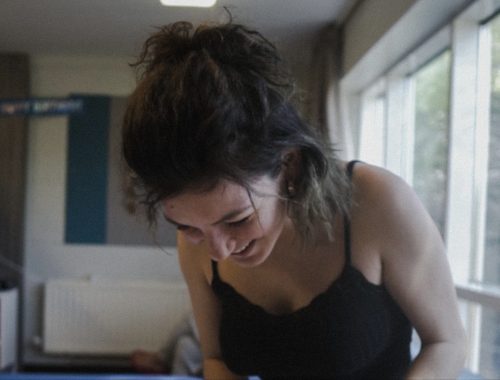Interviewing: On Perspective, Control and Outcome
Interviewing
As I sat to begin writing this blog post, Douglas Heyes’ 1966 adaption of P.C. Wren’s Beau Geste was running on TCM. The titles rolled and my attention oscillated between the Technicolor picture and the task at hand. As the image of a French Foreign Legion officer scouring the burning Fort Zinderneuf for any signs of life moved across the screen, it seemed to correlate, as an image, with the feeling that can occur when you don’t know what to say. I am talking about the inhibiting self-awareness that can sometimes overcome a person, and render them unable to think or speak clearly. It is an anxiety-induced physical response that I have experienced and that I am most susceptible to inside the raised-stakes environment occasions such as interviews present. And indeed, like the film, my history with interviews, pitches and the like could be synopsised as a series of misadventures. Although the outcomes have varied, my tendency to let the heightened moments of social self-sabotage characterise an experience have led me to this evaluate past interviews in this way. Because although interviews are inherently non-conducive to meaningful social interaction, they are nevertheless social situations.
[1]

With the previous in mind, it is my aim in the rest of this blog post to reflect upon the process of preparing for and participating in a mock job interview. From this point on I will utilise Gibbs’ Reflective Cycle (1988, summarised in Jasper, 2013) in order to break the process down and enable a comprehensive reflection on the experience, from my initial consideration of the task, through to how it might inform my future approach to interview situations.
[2]

Description
Tasked with undertaking a mock job interview before a panel of my peers, my first move in the way of preparation was to select the job I would like to interview for. I did consider following the temptation of selecting a job role with greater responsibility, – which would perhaps require a level of experience beyond my own, – however, I came to the conclusion that in order diminish the mock element as much as possible, it was in my interest to select a role I am more familiar with. In turn, this would also be more familiar for my peers, the people asking the questions.
| Producer’s Assistant Dublin-based production company Blinder Films, in partnership with Screen Ireland’s Pathways Scheme, is seeking a dynamic and ambitious Producers Assistant. Blinder Films is one of Ireland’s leading production companies, working across feature films and television drama. Recent productions include Mike Ahern and Enda Loughman’s Extra Ordinary starring Maeve Higgins and Will Forte, Chris Baugh’s Boys from County Hell, and the upcoming Mr Malcolm’s List directed by Emma Holly Jones starring Freida Pinto, Zawe Ashton, Ṣọpẹ́ Dirisu, Oliver Jackson Cohen, Theo James and Ashley Park, and Claire Dix’s debut feature Sunlight. The Producers Assistant will work from late stage development, through casting, crewing up, dealing with closing finance, production right through the edit and all post-production. On a major drama series when episodes are being edited and finished concurrently there is a huge amount to observe and to learn, as well as ample opportunity to work closely supporting the Producers through the process of working through all these milestones right through to delivery. Experience Opportunities include: – Editorial through scripting and in the writer’s room, including research – Casting – Crewing – Production including travel co-ordination, departmental meetings and planning – Budgeting and Schedules – Sustainability & DEI policies implementation and tracking – Financial closing – Prep and production for the Irish leg of the shoot, including being on set – The edit & notes process – Post-production through to delivery – everything from arranging ADR sessions, to preparing credits, to sourcing music tracks, to licensing and researching stock footage, to reviewing stills and putting together marketing and delivery materials While candidates with previous producing and/or film & tv experience will be welcome, we will be taking into consideration the potential, passion & conviction of the candidates alongside prior experience. The successful candidate: Must care deeply about impactful and entertaining television and be an avid viewer/consumer of content.Must possess a passion for creativity as well as an efficient and organized personality.Has strong communication skills, and good knowledge of word, excel, google drive.Will have good attention to detail and have the ability to switch gears and manage a variable workload.Be ambitious to gain the skills and experience required to become a producer. Please apply with your current CV and cover letter. In your cover letter please write a note explaining why you are interested in the position and why you feel you are suitable for the role. |
Above, is the advertisement/ description for my selected job. It is for the role of Producer’s Assistant at a Dublin production company. While it is an entry-level position, the opportunity to observe and be involved through the entirety of the production process aligns with my ambition to direct in the future.
Feelings
When considering my feelings approaching the interview, I must return to the mock element again, which of course minimises the stakes of the situation. Equally, the added component of performing in front of peers meant that I would be interviewing for people I know and I am more comfortable with. That being said, naturally it is desirable to have others find you engaging, articulate and suitable. So, there were still social “stakes” which allowed a little bit of anxiety to creep in, be it diminished.
My imperative, therefore, was to embrace the interview as an exercise in composure and conviviality – qualities I sometimes seem to demonstrate an aversion to.
Evaluation
On reflection, I feel that my interview was successful. In line with my goal, I felt composed in answering questions and comfortable engaging in small talk. I can’t speak for how I was perceived, but like my great aunt who had Jaundice once said, “I don’t feel yellow.”
The point, of course, is that it is myself who must be my focus. As it is my own judgement and feelings that will live with me beyond the interview.
Analysis
Amanda Feiler and Deborah Powell (2015) explain that candidates with less anxiety perform better in interview situations. Their study found that candidates who experience anxiety should ‘focus on how assertive and interpersonally warm they appear to interviewers.’ In spite of any indicators of anxiety that may have been showing, by focusing less on the social stakes of the situation and emphasising assertiveness and engagement with the interviewer, I believe that I was effectively able to mediate the trend between anxiety and outcome.
Throughout the interview I tried to regulate my speed in answering questions and also use humour to build rapport with the interviewers. If there were any negatives, it is possible that I came across as too light-hearted in parts. However, I don’t think this was over-the-top, and it is of course important to leave a good impression with potential colleagues.
Beside presentation and behaviour, content must also not be overlooked. As Ron Fry (1991) helpfully points out, an interviewer’s motivation ‘is to quickly learn about you to make an informed decision.’ It is not their goal to interrogate or break down a candidate, but to offer them through pointed, relevant questions, an opportunity to prove their suitability for a role. Again, I feel as though the content of my answers effectively addressed the questions levelled at me. One tool I found useful was the STAR technique, which helped me to structure my answer to one competency-based question in a way that made it compelling and thorough. Elsewhere, my answers referred back to the job description and dealt with the key desirables that the employer was looking for.
[3]

Conclusion
I believe that the success of my mock interview was achieved both through effective preparation and also through my approach of focusing my attention outwards rather than on internal and external self-awareness. The positive experience has helped me to reinforce an effective interview technique.
Action Plan
When approaching an interview again in the future, perhaps in a real situation before interviewers I do not know, I will definitely work to apply the same perspective which made my mock interview successful. A good interview begins in preparation, and the best way to access and demonstrate my preparedness and suitability for a role is to not let the situation become too big. It is important to focus on gaining personal value from the situation, – or, that which is within your control, – because allowing self-awareness to consume your attention is only ever inhibiting.
Bibliography
Feiler, A., Powell, D., (2015) ‘Behavioral Expression of Job Interview Anxiety.’ Journal of Business and Psychology, 31, 155-171.
Fry, R., (1991) 101 Great Answers to the Toughest Interview Questions. Hawthorne: Career Press.
Jasper, M. (2013) Beginning Reflective Practice. Melbourne & London: Cengage Learning.
Images
[1] https://images.45worlds.com/f/ci/beau-geste-1966172913-ci.jpg
[3] https://wizardsourcer.com/wp-content/uploads/2019/02/Star-Interview-Method.jpg
Improving my approach to interviews.
A Stimulating Simulation
You May Also Like

So You Want To Be A Teacher?
17 February 2022
Finding the Right Balance: My Simulated Interview Experience
14 February 2022
